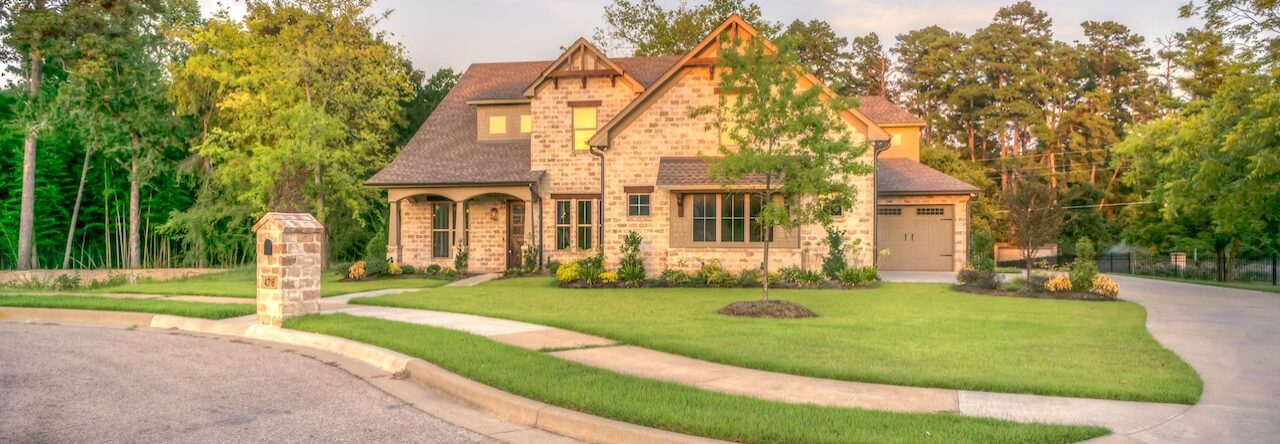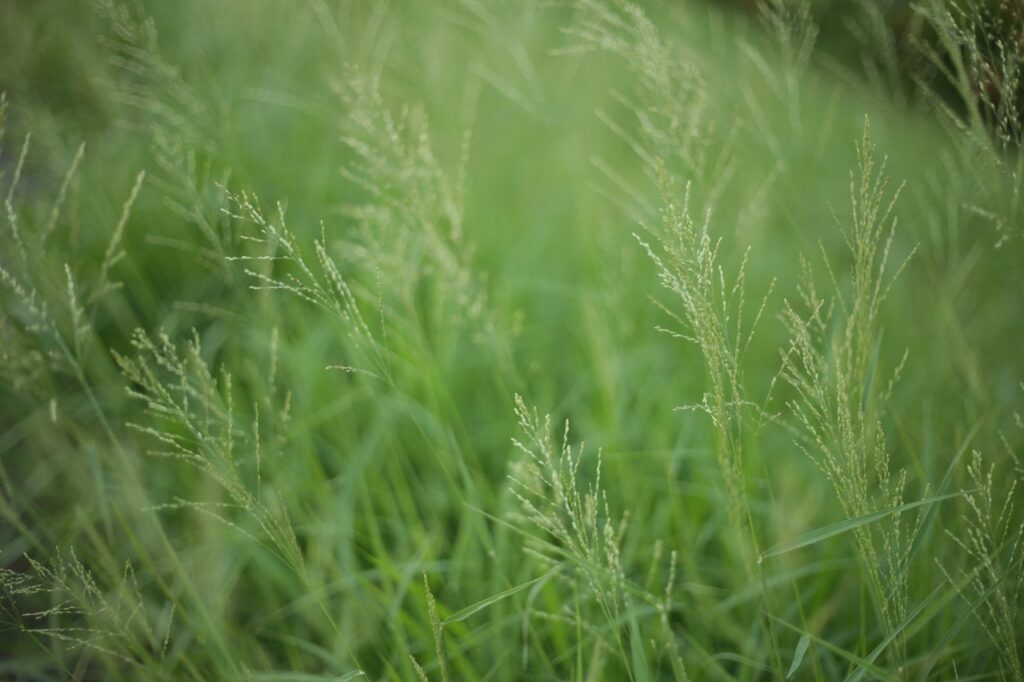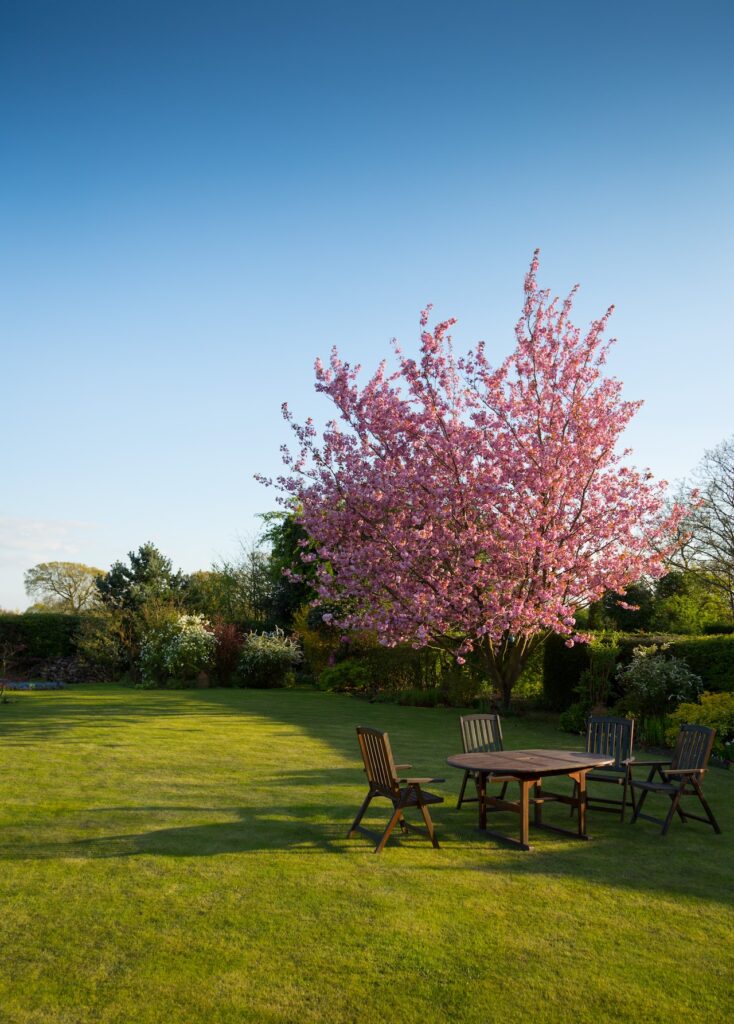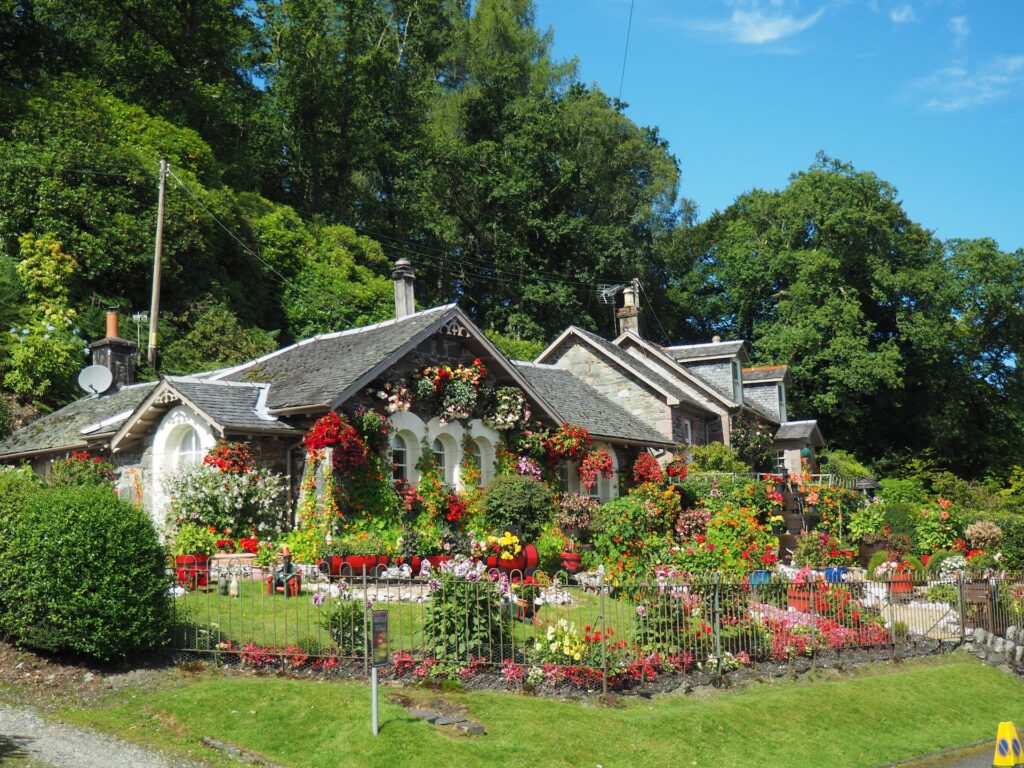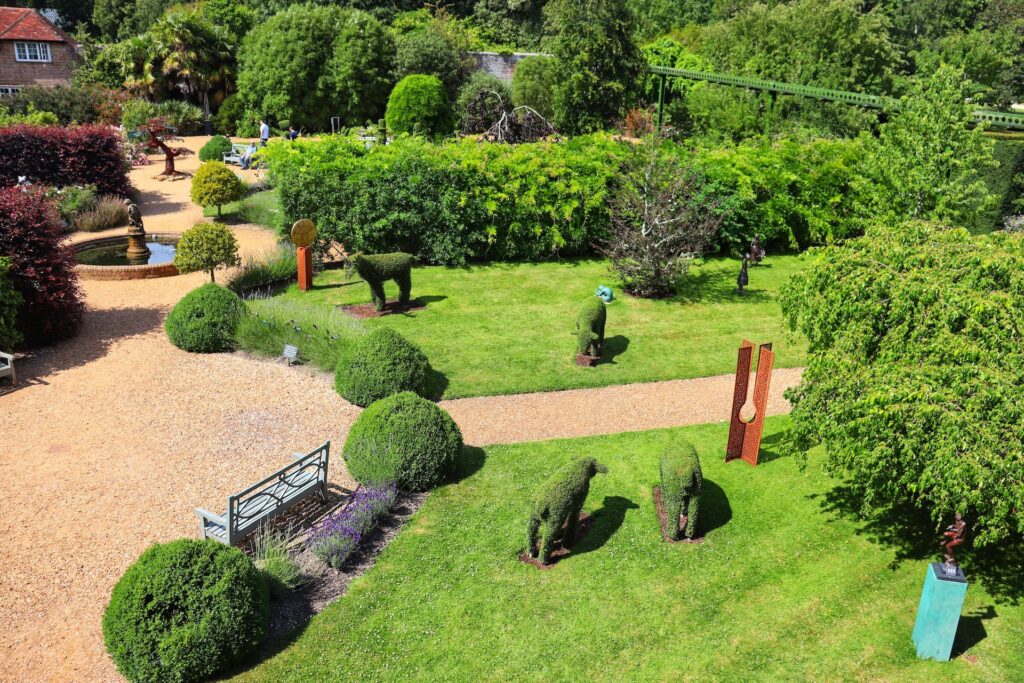Enhancing your home’s curb appeal with well-designed landscaping in Marietta, Georgia, can significantly increase the aesthetic value of your property. Marietta’s climate, characterized by warm summers and mild winters, allows for a wide variety of landscaping options.
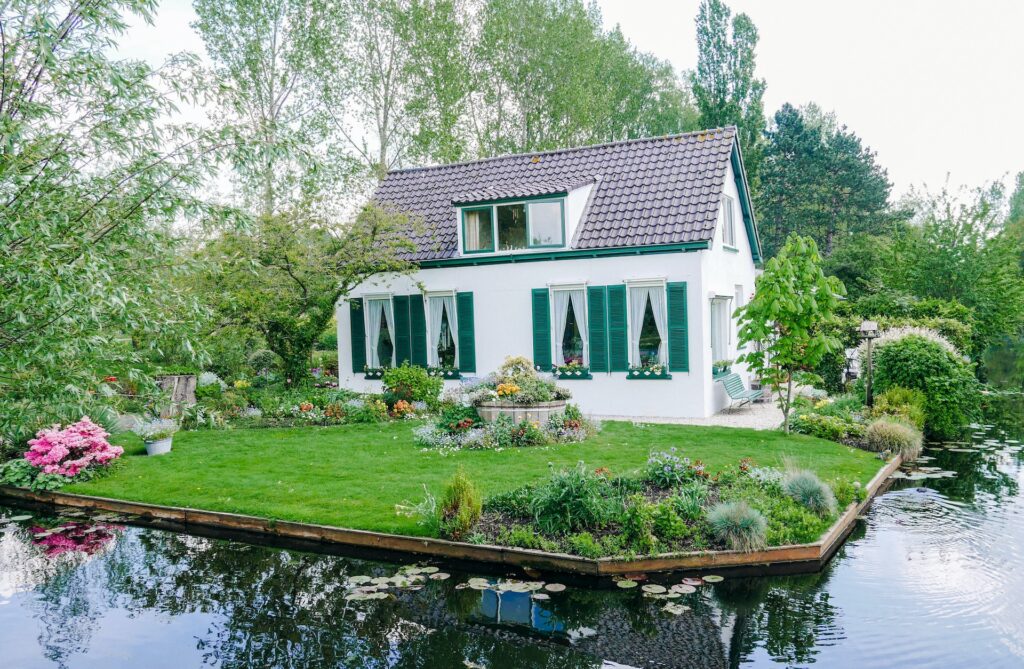
Here are some ideas and tips to create an attractive and welcoming front yard:
- Choose Native Plants:
Select native plants and trees that are well-suited to Marietta’s climate and soil. Native plants are adapted to local conditions, which makes them easier to maintain.
- Create Layered Beds:
Design your landscape with layered planting beds. Place taller shrubs or small trees at the back, followed by medium-sized plants, and then low-growing ground cover in the front. This provides depth and visual interest.
- Seasonal Color:
Incorporate plants that bloom at different times of the year. This ensures that your landscape remains colorful and appealing throughout the seasons.
- Well-Maintained Lawn:
Keep your lawn well-maintained, including regular mowing, watering, and fertilization. A healthy lawn is a crucial part of curb appeal.
- Hardscape Elements:
Add hardscape elements like walkways, paver patios, or stone borders. These features can provide structure and create focal points in your landscape.
- Accent Lighting:
Install outdoor lighting to highlight architectural features and key landscape elements. Well-placed lighting can enhance your home’s appearance during the evening hours.
- Garden Borders:
Define garden beds with attractive borders. Options include bricks, stones, or metal edging. Borders keep your landscaping organized and add visual appeal.
- Water Features:
Consider adding a small fountain or pond for a calming and attractive focal point in your landscape. The sound of water can be soothing and adds a unique touch.
- Shaded Areas:
Create shaded seating areas with pergolas, arbors, or shade trees. This not only adds comfort but also enhances the visual appeal of your landscape.
- Proper Plant Placement:
Be mindful of the mature size of plants and trees when planting them. Avoid overcrowding and ensure they have adequate room to grow.
- Pathways and Walkways:
Design well-defined pathways that guide visitors to your front door. Materials like flagstone or brick can add elegance.
- Focal Points:
Introduce focal points in your landscape, such as a beautiful flower bed, a striking sculpture, or an ornamental tree. These elements draw the eye and create visual interest.
- Xeriscaping:
Consider xeriscaping principles by using drought-tolerant plants and efficient irrigation systems. This approach is eco-friendly and can save on water bills.
- Potted Plants:
Use decorative pots and containers with colorful flowers or shrubs to add accents to your porch or entrance.
- Lawn Decor:
Install lawn ornaments, birdhouses, or garden art that complements your landscaping theme.
- Maintenance:
Regularly maintain your landscaping by trimming, pruning, and weeding. An unkempt landscape can quickly detract from curb appeal.
- Seek Professional Advice:
If you’re unsure about design or plant selection, consult a local landscaper or garden center. They can provide expert advice tailored to Marietta’s conditions.
- Keep Proportions in Mind:
Ensure that the scale and proportions of your landscaping elements are harmonious with your home. A small garden can get lost in front of a large house, while overly large elements can overwhelm a smaller home.
Remember that well-designed landscaping should not only be visually appealing but also functional and in harmony with your home’s architecture. By incorporating these tips and ideas, you can create an inviting and beautiful front yard that enhances your home’s curb appeal in Marietta, GA.
